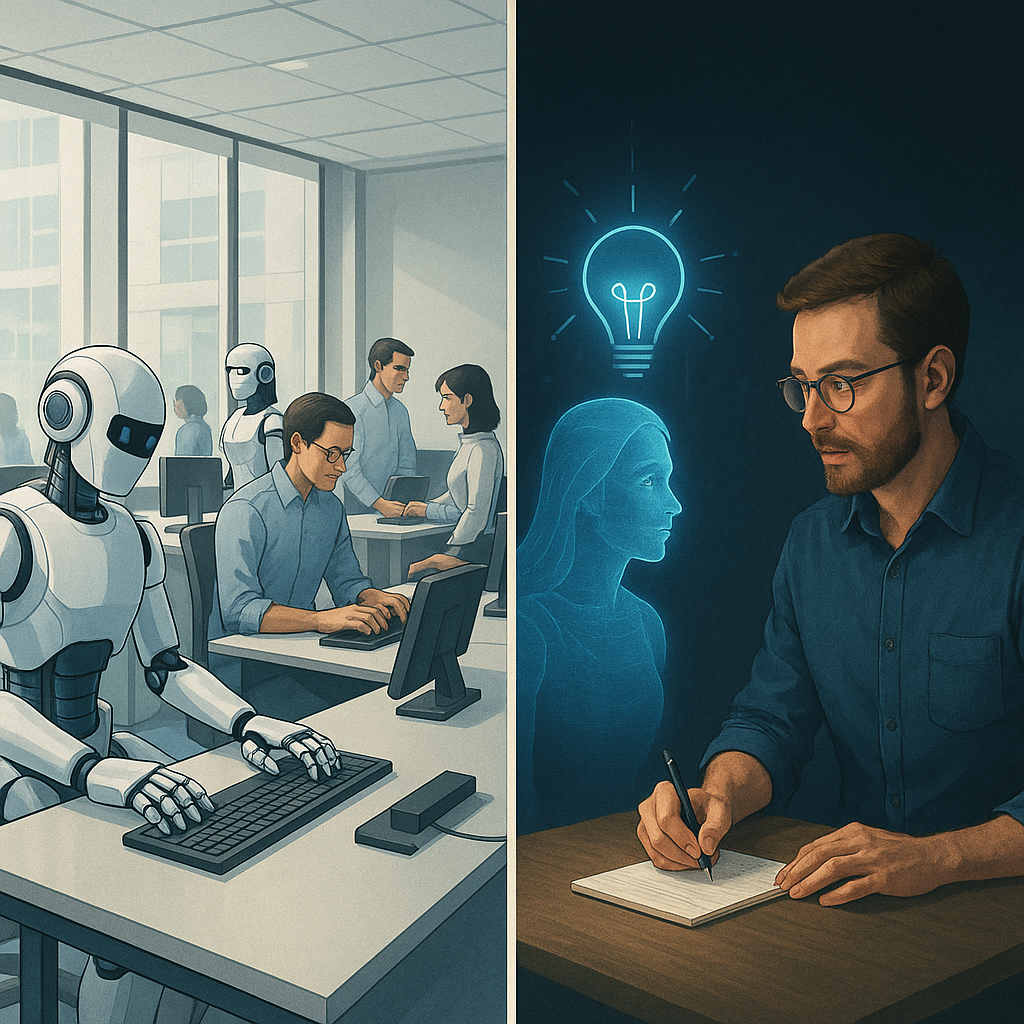AI and the Future of Work: Will Robots Really Take Our Jobs?
There’s a lot of fear about AI taking over the workforce — but is it really going to replace humans, or will it transform the way we work for the better? Let’s dive into how AI is reshaping jobs and creating new opportunities.


As artificial intelligence continues to evolve, one question keeps coming up: Will AI take our jobs?
It’s a fair concern — after all, we’ve already seen AI automate tasks in industries like manufacturing, logistics, and even customer service. But the story isn’t as simple as "robots replacing people." In fact, AI might not be the job destroyer many think it is — it could be one of the greatest job creators in modern history.
The Truth Behind the Fear
Much of the fear surrounding AI and employment comes from the unknown. When something new enters the scene, especially something as powerful as AI, it’s natural to worry. The media often fuels this fear with dramatic headlines, painting a picture of a future where human workers are obsolete.
But reality tells a different story. Yes, some jobs are being automated — especially repetitive or dangerous ones. However, these same shifts are opening up new roles we never imagined a decade ago: AI trainers, ethics advisors, prompt engineers, and human-AI collaboration specialists, just to name a few.
Jobs AI Will Change, Not Kill
AI is most effective when it supports humans — not replaces them. Think of it as a tool that can enhance productivity, free up time, and eliminate mundane tasks.
For example:
Doctors can use AI to analyze scans faster and more accurately.
Teachers can personalize lessons using AI-powered tools.
Writers can use AI to brainstorm and edit content more efficiently.
IT engineers (like us) can automate monitoring, ticket triage, or even suggest solutions to issues — allowing us to focus on strategy and innovation.
In all these fields, humans still play the critical thinking, emotional, and creative roles — things AI simply can’t do on its own.
The Rise of Human-AI Collaboration
One of the most exciting changes ahead is the shift to collaborative intelligence — where humans and AI systems work together, each focusing on their strengths.
Humans bring:
Creativity
Empathy
Judgment
Ethics
AI brings:
Speed
Data processing
Pattern recognition
24/7 availability
Together, they form a powerful partnership. And that’s exactly what the future of work looks like — not humans vs. AI, but humans with AI.
Preparing for the Future
The key is adaptability. Learning how to work with AI tools — whether you're a manager, engineer, artist, or teacher — will be one of the most valuable skills in the next decade.
If you can adapt, upskill, and think creatively, you’ll be not just safe from automation — you’ll thrive because of it.
Conclusion:
AI isn’t here to take your job. It’s here to change the way we work — hopefully for the better. The question isn’t “Will AI replace me?” — it’s “How can I use AI to become even better at what I do?”
So, let’s stop fearing the future — and start building it.